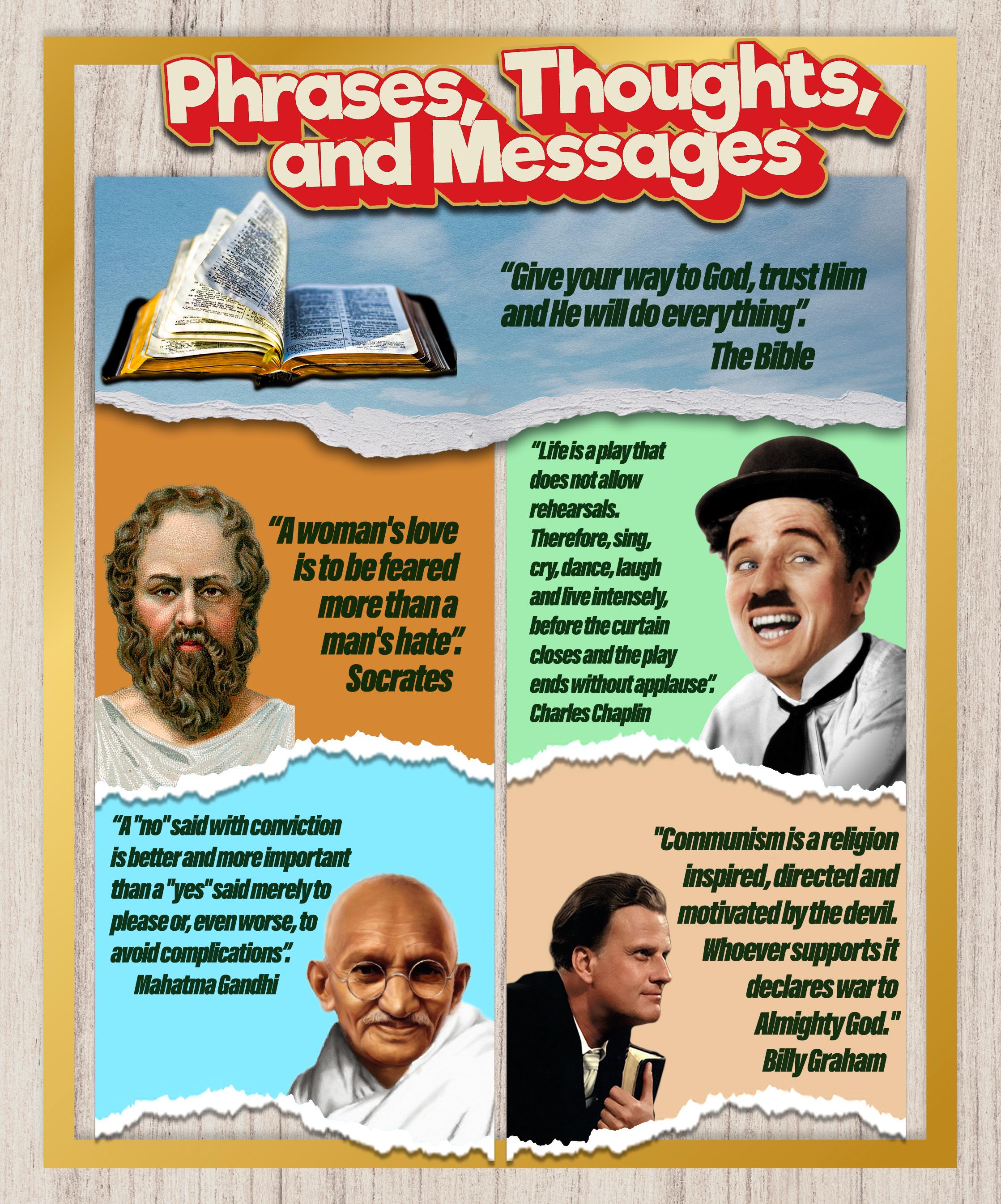
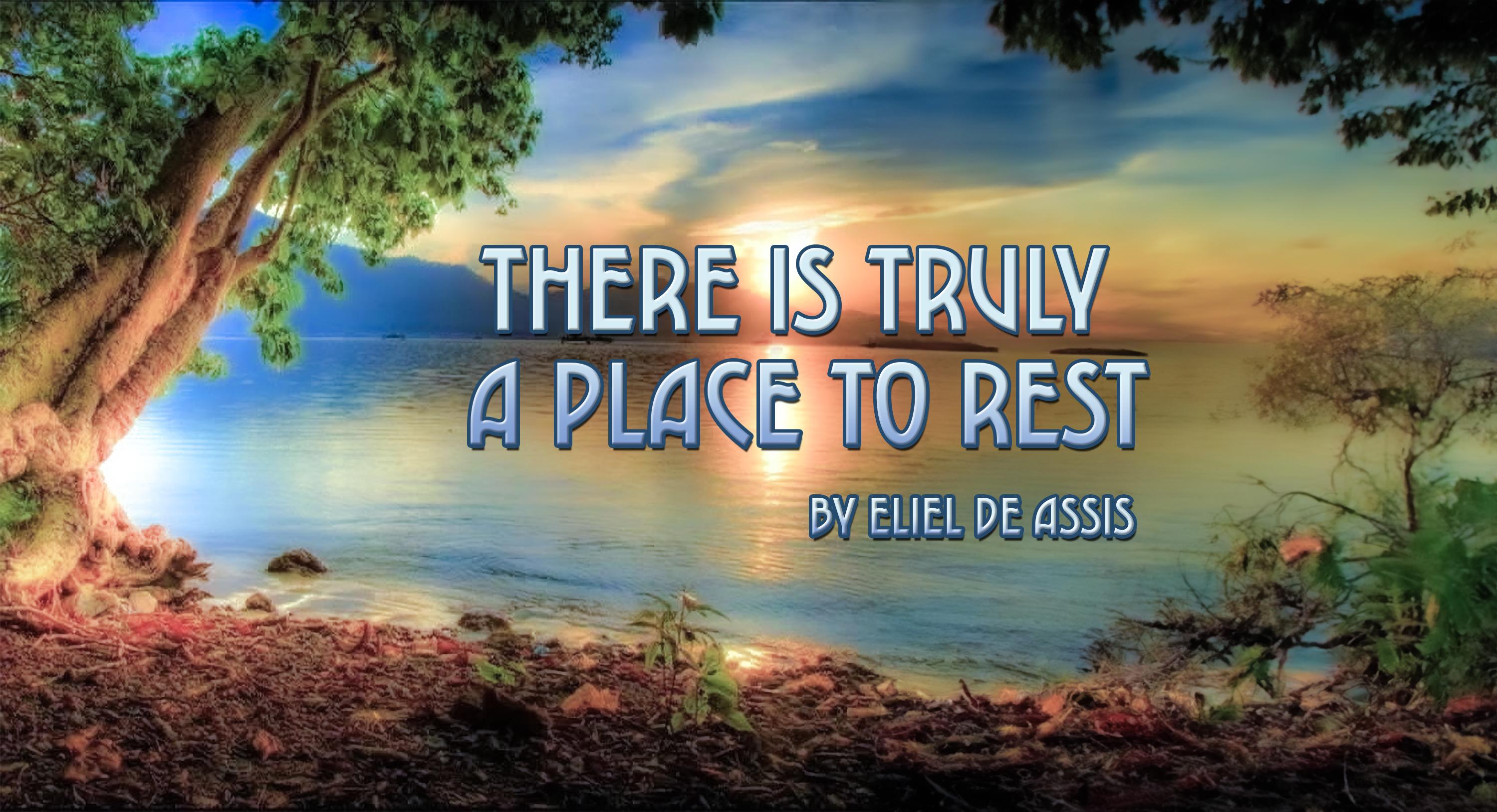


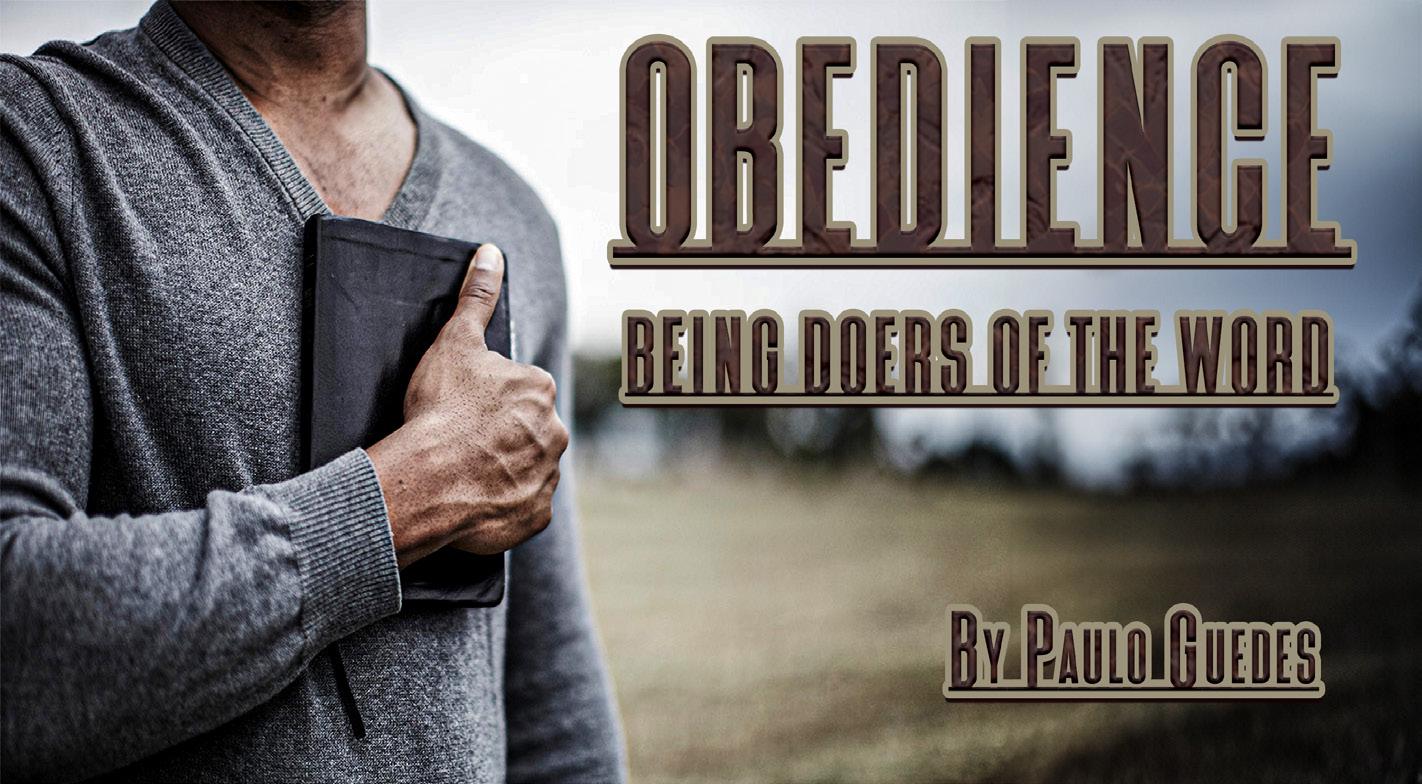

There are many theories about how chocolate came to be, but the one that is most commonly accepted is that it was first discovered by the ancient Mayans.
The Mayans and the Aztecs accidentally found chocolate thousands of years ago, and they used it in a bitter liquid form.
According to this theory, the Mayans first cultivated cocoa beans and utilized them to make a bitter beverage with a chocolate flavor.

It is thought that they utilized it as a kind of payment and a ceremonial beverage. It was also a crucial trade that benefited them.
Due to its alleged special properties, this beverage was also frequently used in religious rituals.
The Mayans began to gradually sweeten the beverage and added extra ingredients to make it more palatable and, as a result, chocolate as we know it today was created.
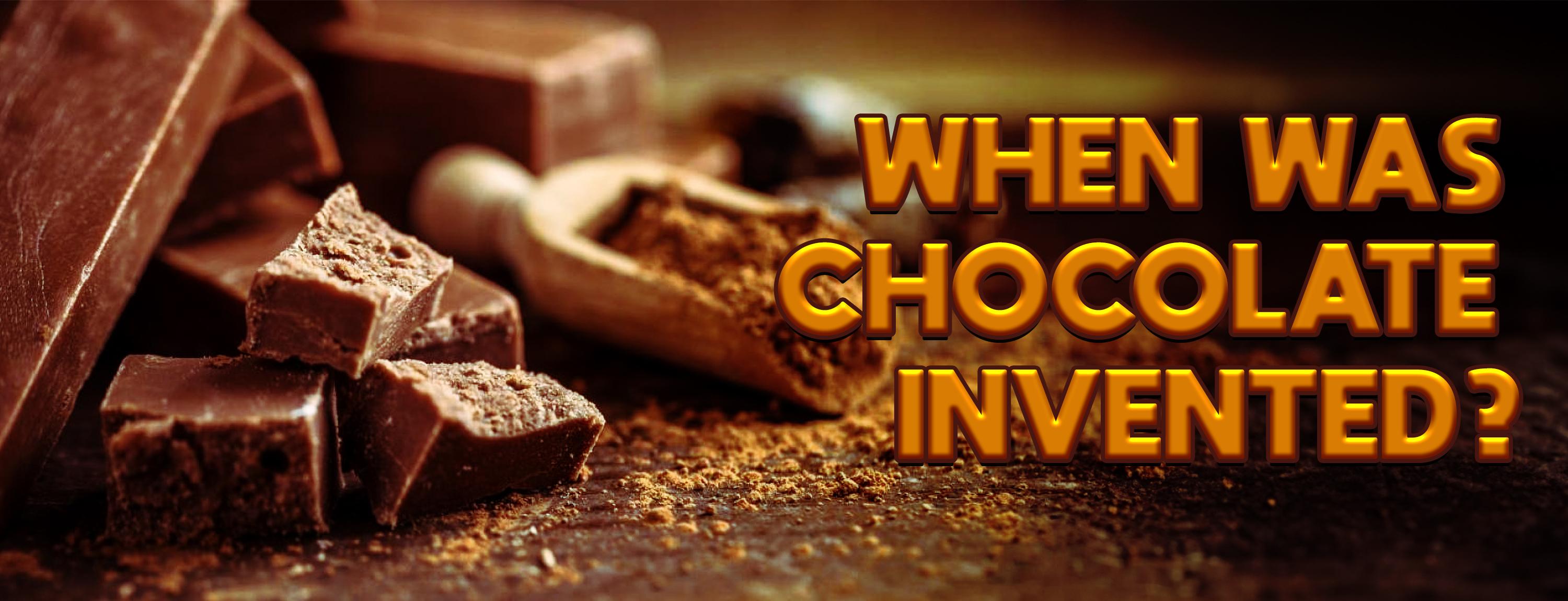
However, the chocolate that we know today, which is
cartasaoeditor@aol.com
www.omensageiro7.com
©2023 by: O Mensageiro7Inc.
All Rights Reserved
The Newspaper O Mensageiro7 is a monthly publication via ONLINE in English, Portuguese, and Spanish.
Reproduction in whole or in part of the context of the publication without proper permission is expressly prohibited.
O Mensageiro7 Newspaper is not responsible for the insertion of photos, logos, slogans, errors or omissions by advertisers or information provided by third parties, edited in any part of this publication.
Articles, messages, interviews, and studies published in this Newspaper, by each author, do not necessarily reflect the opinion of the Editor.
Each writer is responsible for their own content.
Therefore, each author is available to answer the reader's questions.
The Mayans and the Aztecs accidentally found chocolate thousands of years ago, and they used it in a bitter liquid form.
CONTINUING FROM PAGE 2
sweeter and creamier than the ancient beverage, was developed much later.
The first chocolate bar was created in 1847 by British chocolate maker J.S. Fry & Sons, who figured out how to mix cocoa powder, sugar, and cocoa butter to create a moldable chocolate paste that could be formed into bars.
So, while cacao beans have been used for thousands of years, modern chocolate as we know it today didn’t exist until the mid-19th century.
WHO INVENTED WHITE CHOCOLATE?
White chocolate, which is made from cocoa butter, sugar, milk solids, and vanilla, was first invented by the Swiss chocolate company Nestlé in the 1930s.

Specifically, a Swiss chocolatier named Peter Schlumpf developed the first white chocolate recipe for Nestlé in 1930.

White chocolate has a milder flavor than traditional plain, dark or milk chocolate and doesn’t contain any cocoa solids responsible for the characteristic chocolate flavor.
Instead, white chocolate has a creamy, buttery taste from cocoa butter.
While there is debate over whether white chocolate can be considered “real” chocolate since it doesn’t contain cocoa solids, it remains a popular and beloved treat worldwide.
(You might also be interested in this blog post asking: what is chocolate, and why is it so tasty?)
THE EVOLUTION OF CHOCOLATE
Chocolate's Sweet History: From Elite Treat to Food for the Masses | HISTORY
The evolution of chocolate spans thousands of years and includes a rich history of cultural, technological, and scientific advances.
Here is a brief overview of the significant milestones in
the evolution of chocolate:
Ancient Mesoamerica: The use of cacao beans, which are used to make chocolate, dates back at least 4,000 years to ancient Mesoamerica, where the Aztecs and Mayans cultivated cacao trees and used the beans to make a bitter beverage.
EUROPEAN DISCOVERY
The first Europeans to encounter chocolate were the Spanish conquistadors, who were introduced to it by the
Aztecs in the early 16th century.
Chocolate became popular among the Spanish elite and was eventually brought to other parts of Europe.
INDUSTRIAL REVOLUTION
The development of new technologies during the Industrial Revolution allowed for the mass production of chocolate.
For example, in 1828, Dutch chemist Coenraad Van Houten developed a process for removing the fat from cacao beans, resulting in the creation of cocoa powder, which made chocolate more affordable and accessible to the masses.
MODERN CHOCOLATE
In the late 19th and early 20th centuries, chocolate underwent a significant transformation as new processes were developed for mixing cocoa powder, sugar, and cocoa butter to create a moldable chocolate paste that could be formed into bars and other confections.
Today, chocolate is enjoyed worldwide in various forms, from chocolate bars and truffles to hot cocoa and chocolate-flavored desserts.
Throughout its long and storied history, chocolate has been enjoyed as a symbol of luxury, love, and indulgence. Its evolution continues to this day as new varieties and flavor combinations are developed and commercialized.
THE FUTURE OF CHOCOLATE
The future of chocolate is likely to be shaped by several factors, including advances in technology, changes in con-
White chocolate has a milder flavor than traditional plain, dark or milk chocolate.
CONTINUING FROM PAGE 3
sumer preferences and behavior, and efforts to address health, sustainability, and social responsibility issues.
Here are some of the trends and developments that may shape the future of chocolate:
HEALTH AND WELLNESS
As consumers become more health-conscious, there is a growing interest in chocolate that is lower in sugar and fat and contains functional ingredients such as probiotics, antioxidants, and fiber.
SUSTAINABILITY
There is a growing awareness of chocolate production’s environmental and social impact, and efforts are underway to develop more sustainable and responsible supply chains.
This includes initiatives to reduce deforestation, promote fair trade, and support local communities.
INNOVATION
The development of new technologies and ingredients will likely continue to drive innovation in the chocolate industry, with unique flavor combinations, textures, and formats being explored.
PERSONALIZATION
With the rise of digital technology, there is an opportunity to offer more personalized chocolate experiences, including customized products and packaging and interactive and immersive online experiences.
WHY IS CHOCOLATE SO POPULAR?
Chocolate is popular for many reasons, including its unique taste, texture, and aroma, as well as the emotional and physiological effects it can have on the body.
Here are some of the main reasons why chocolate is so popular:
PLEASURE
Chocolate has a unique taste and texture that people of all ages and backgrounds widely enjoy. The combination of sweet and bitter flavors and the creamy texture make it a delightful and indulgent treat.
EMOTIONAL BENEFITS
Chocolate is often associated with positive emotions, such as happiness, comfort, and relaxation.
This may be due in part to the release of endorphins and other “feel-good” chemicals in the brain that can be triggered by consuming chocolate.
NUTRITIONAL VALUE
Chocolate contains various nutrients, including antioxidants, fiber, and minerals such as iron, copper, and magnesium.
Dark chocolate, in particular,
is considered a healthy food and can provide health benefits when consumed in moderation.
TRADITION
Chocolate has a long and rich history and has been enjoyed by people worldwide for centuries. It has been used in religious ceremonies, as a form of currency, and as a symbol of luxury and indulgence.
VERSATILITY
Chocolate can be used in various forms and formats, from chocolate bars and truffles to hot cocoa and chocolate-flavored desserts.

It can be enjoyed as a snack, a dessert, or a drink, making it a versatile and popular food.
Chocolate is a beloved and popular food for many reasons, and its popularity is likely to continue for many years. ◙
Source: Britannica.com
Over the past fifteen to twenty years, I've owned about a dozen cell phones. Almost all of them were replaced because they stopped working; they are not designed to last very long.
Similarly, people I know who use computers will agree that equipment that is more than three years old is technologically outdated.
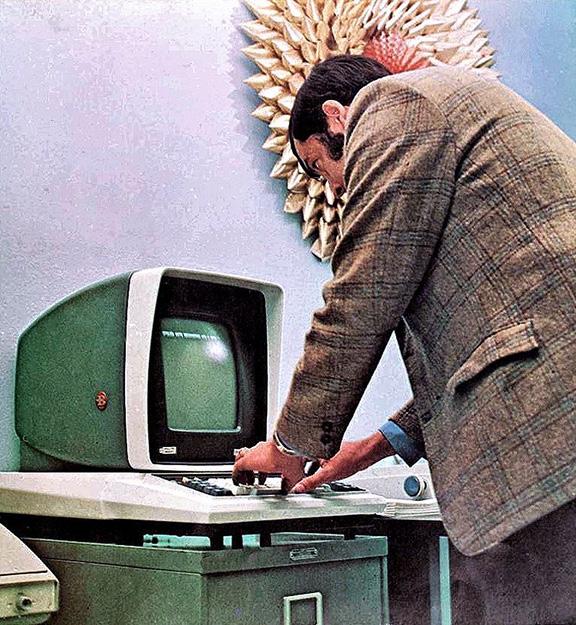
On the other hand, when I perform as a musician, I usually use a 60-year-old guitar amplifier, and I consider it to be very reliable.
My wife and I have furniture in our house that is over 40 years old, and we have no intention of replacing it because they were designed to stand the test of time.
Some things don't need to be durable because they become obsolete before they wear out, like computers and technological devices in general; apparently, they are outdated before you even make
the journey home from the store.
Others, such as plastic packaging, have a lifespan that goes far beyond their usefulness.
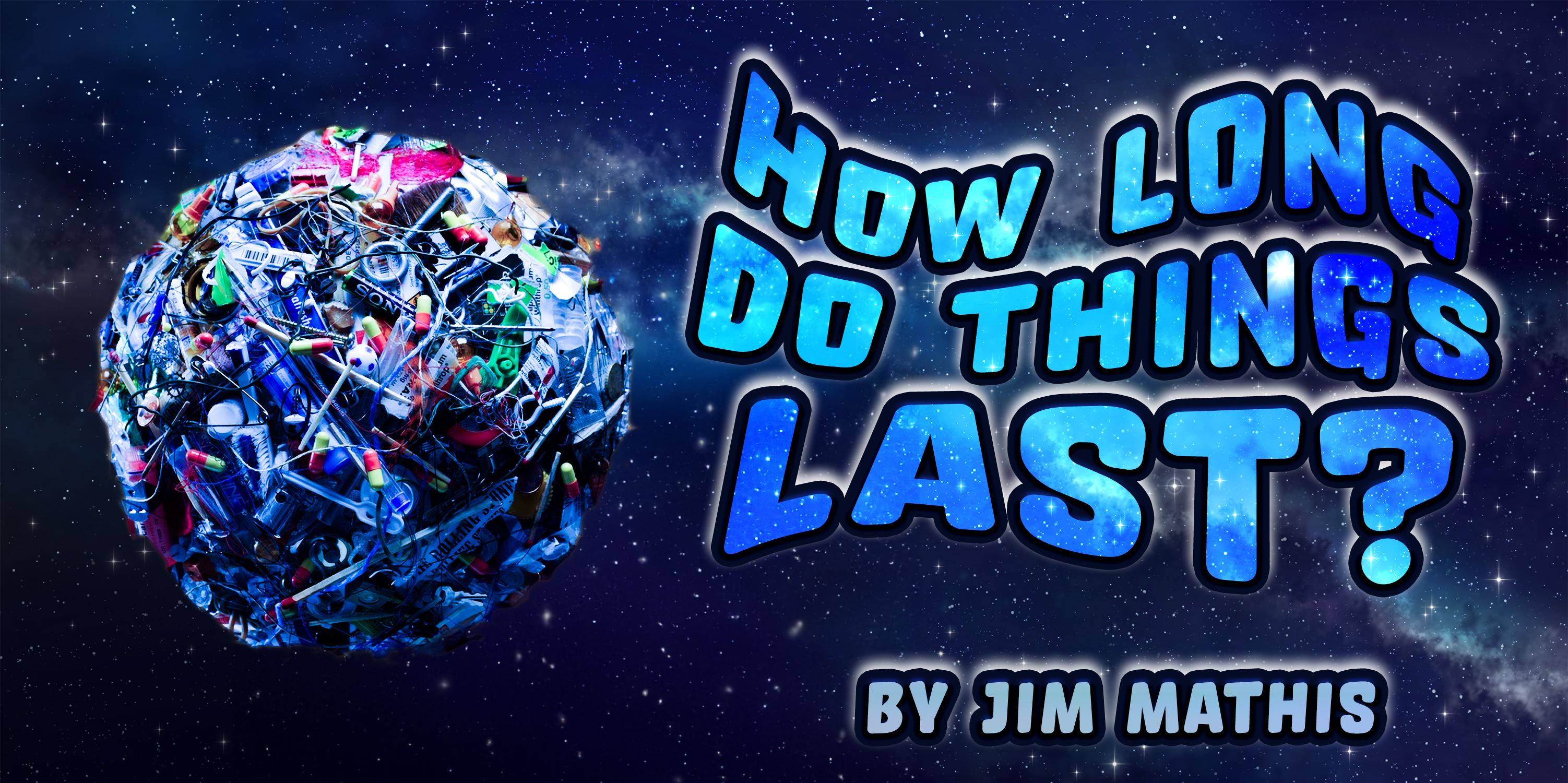
I've been grappling with the issue of usefulness and obsolescence because my car is getting old. It has accumulated far more mileage than any of the other 34 cars I've ever owned.
However, it remains structurally sound, just like the day I bought it 11 years ago. And since it is in excellent condition, I plan to continue driving it.
Let us apply this understanding of the temporal nature of things to the spiritual realm.
Jesus spoke about this, urging His listeners not to become attached to their possessions:
“Do not lay up for yourselves riches here on earth, where moth and rust destroy, and where thieves break in and
Some things don't need to be durable because they become obsolete before they wear out.
CONTINUING FROM PAGE 5

steal. Instead, lay-up riches in heaven, where moths and rust cannot destroy them, and thieves cannot break in and steal them” (Matthew 6:19-20).
Jesus spoke about the futility of dedicating our lives to the pursuit of things that wear out, get damaged, or become obsolete.
He was saying that it is much wiser to focus on eternal things that never grow old. And he made an additional comment:
“For where your riches are, there will your hearts be” (Matthew 6:21).
Jesus insightfully observed that if money and what we have are our number one priority, we will dedicate ourselves to seeking and ac cumulating things we cannot hold on to forever.
On another occasion, Jesus spoke of the rich man who decided to build a large gra nary to store his bountiful harvest and said to himself:
“You have an abundance of good things laid up for many years. Enjoy life, eat, drink, and be merry.”
That night, however, the rich man died, leaving all his earthly possessions for someone else to enjoy.
Jesus closed with the following comment:
“This is what happens to those who store up riches for themselves but are not rich toward God” (Luke 12:21).

The question is:
Am I spending my time, energy, and talents primarily on acquiring things that will be discarded or lost, or am I investing them in things that will last for eternity? ◙
Questions for Reflection or Discussion:
1- Do you hold onto and cherish things that will soon wear out or become obsolete and that you will have to discard?
2- Have you invested in things that last a long time? Which one do you value most?
3- Are you devoting most of your time and energy to things that will eventually be discarded or lost, or to things that have eternal value?
4- Have you considered the need to reassess and redirect your focus in this regard?
If you wish to explore other Bible passages related to this theme, we suggest:
Proverbs 3:27-28; 11:24-26; 19:17; 22:2, 9; 27:20; 28:8.
Am I spending my time, energy, and talents primarily on acquiring things that will be discarded or lost, or am I investing them in things that will last for eternity?
J. Robert Oppenheimer was one of the United States most highly regarded theoretical physicists in the 1920s and 1930s.
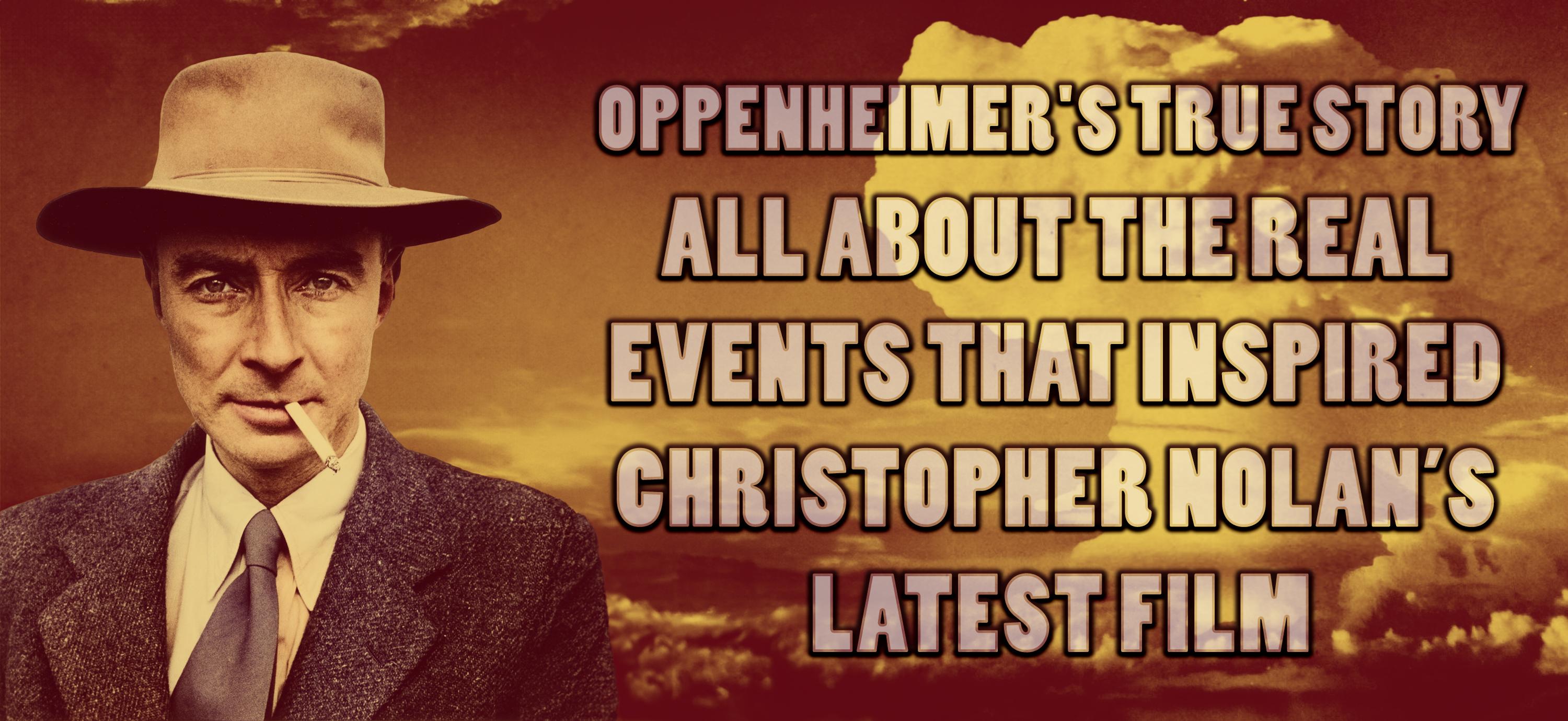
As explored in the film, he headed up the Manhattan Project laboratory in Los Alamos, New Mexico, after being recruited by President Franklin D. Roosevelt to be part of a secret project, per Smithsonian Magazine.
“Oppenheimer is regarded as the father of the atomic bomb,” Kai Bird told Time Out. Bird is the co-author of American Prometheus: The Triumph and Tragedy of J. Robert Oppenheimer, the basis for the film.

On July 16, 1945, with a team of accomplished scientists, Oppenheimer launched the world’s first atomic bomb test in the Jornada del Muerto desert in New Mexico.
“With a force matching 21 kilotonnes of TNT, the detonation was the largest ever seen,” the BBC says. “It created a shockwave that was
felt 160km (100 miles) away.” Part of Project Y and codenamed “Trinity,” the project reportedly had a huge effect on Oppenheimer’s health, with his weight plummeting afterward to just 115 pounds.
For the rest of his life, Oppenheimer seemed to wrestle with his involvement in creating the atomic bomb, and later interviews showed him displaying regret.
As The New York Times notes, the physicist became known for having uttered the nowfamous phrase “I am become Death, the destroyer of worlds”, while witnessing the first test—a quote from Hindu scripture the Bhagavad Gita, which “he cited as having shaped his philosophy of life,” according to the Berkeley Historical Plaque Project.
Whatever guilt Oppenheimer felt was apparently complicated, however, as the scientist seemed to relinquish any responsibility for the 1945 atomic bombings of Hiroshima and Nagasaki in Japan, at the end of World War II.
Oppenheimer is regarded as the father of the atomic bomb.
“I carry no weight on my conscience,” he claimed in 1961, according to The New York Times. “Our work has changed the conditions in which men live, but the use made of these changes is the problem of governments, not of scientists.”
As portrayed in Nolan’s mov ie, Oppenheimer did meet with President Harry S. Tru man (Gary Oldman), who or dered the bombings of Japan, but the appointment was less than successful.
“Mr. President, I feel I have blood on my hands,” he told Truman, per Smithsonian Magazine.
But Bird told Time Out, “It was a disaster of a meeting. Truman told an aide: ‘I don't want to see that crybaby scientist ever again.’”
WHAT’S THE TRUTH ABOUT OPPENHEIMER’S PERSONAL LIFE?
According to the Berkeley Historical Plaque Project, Op penheimer was a lecturer at the University of California, Berkeley between 1929 and 1943, where he was popular among students.
Earning the nickname Oppie, the physicist was reportedly a hit because of “his striking looks, bohemian attitudes, leftist politics, and eclectic tastes.”
Bird also noted that Oppen heimer was considered to be “deeply charismatic, and at tractive to women.” “You had to listen very carefully, but he was magnetic,” the historian said.
Oppenheimer married Katherine “Kitty” Puening (portrayed in the film by Emily Blunt) in 1940 after they had
an affair, and the pair had two children, per Brittanica.
Kitty worked as a laboratory technician in Los Alamos, where she carried out blood tests to determine the effects of radiation on human beings.

According to Brittanica, Kitty—who had been associated with the Communist Party— was called “bewitching” and “impossible” by people who knew her. Her former association with communism would later impact on her husband’s career.
Despite his marriage, Oppenheimer’s so-called “first love” reportedly remained pertinent throughout his life.
Oppenheimer met Jean Tatlock (Florence Pugh) at Berkeley, where she studied before attending medical school at Stanford, per Biography.
Although there was a 10-year age difference between the two, they were reportedly madly in love, with Oppenheimer allegedly proposing twice to Tatlock.
Even when Oppenheimer married Kitty, he reportedly continued an affair with Tatlock, who was also a member of the Communist Party of the United States of America and would later become a psychiatrist.

As noted by Biography, Tatlock’s affiliation with communism would prove devastating to Oppenheimer’s career later in his life as well. Tragically, Tatlock died by suicide on January 4, 1944, at 29.
DID OPPENHEIMER HAVE A TROUBLED CHILDHOOD?
Oppenheimer was born on April 22, 1904 into a Jewish family in New York City, according to the Atomic Heri-
“I am become Death, the destroyer of worlds”.
J. Robert Oppenheimer
CONTINUING FROM PAGE 8
tage Foundation.
He graduated from high school as valedictorian in 1921, but health issues almost hampered his career. Per the Atomic Heritage Foundation, “a near-fatal case of dysentery” caused Oppenheimer to “postpone enrolling at Harvard” until September 1922.
He subsequently studied physics at the Cavendish Laboratory in Cambridge in 1925.

According to Vanity Fair, Oppenheimer became depressed at Cambridge, writing in a letter to a friend:
“I am having a pretty bad time. The lab work is a terrible bore, and I am so bad at it that it is impossible to feel that I am learning anything ... The lectures are vile.”
In the movie, the young scientist is seen poisoning his Cambridge tutor’s apple, and apparently this really did happen.
As Bird and co-author Martin Sherwin reveal in their biography:
“Consumed by his feelings of inadequacy and intense jealousy, he ‘poisoned’ an apple with chemicals from the laboratory and left it on [tutor Patrick] Blackett’s desk.”
According to Bird and Sherwin, it’s unclear if Oppenheimer used cyanide or another poison, but either way, by his own account he did tamper with his tutor’s food. (University authorities found out before Blackett could eat the apple, and Oppenheimer was nearly expelled.)
After Cambridge, Oppenheimer would move to Germany to learn from Max Born, the director of the Institute of Theoretical Physics at the
University of Göttingen, the Atomic Heritage Foundation says. After receiving his doctorate in 1927, Oppenheimer took up positions at Berkeley and at the California Institute of Technology.
WHAT HAPPENED TO OPPENHEIMER?
Life changed dramatically for Oppenheimer during the McCarthy era, when he was one of many Americans accused of being a Communist
Party sympathizer because of his political views and relationships, The New York Times says. Oppenheimer had also been speaking widely about the dangers of nuclear warfare, which likely contributed to the scrutiny he was placed under, as his opinion was politically unpopular, per Smithsonian Magazine.
In 1954, he was brought before the Atomic Energy Commission and lost his security clearance at the hearing.
It was later revealed that the FBI had bugged Oppenheimer’s home throughout his tenure at Berkeley, the Berkeley Historical Plaque Project says.
Along with wife Puening and mistress Tatlock, Oppenheimer’s brother and a close friend were both also Communist Party members, though the scientist himself was never an official member, Smithsonian Magazine notes. In spite of this, “[he] was hauled before a kangaroo court, humiliated and stripped of his security clearance,” Bird told Time Out.
After the hearing, Oppenheimer reportedly struggled to reconcile his beliefs with reality. “He spent the rest of his life after 1945 trying to grapple with the implications of what he had produced as a scientist,” Bird told Time Out.

“He was very intolerant of authority and arrogance, and as a result he made some powerful political enemies.”
Oppenheimer died due to throat cancer, following years of chain smoking, on February 18, 1967 in Princeton, New Jersey, at the age of 62. Decades later, his influence on the world can still be felt. ◙
Source: Time Magazine.
We must be doers of the Word and not hearers only. THE MIRROR

"For if anyone is a hearer of the word and not a doer, he is like a man looking at his natural face in a mirror." - James 1:23
One day, an African chief received a mirror as a gift. Out of curiosity, he began to gaze and observe what was being reflected in the mirror.

He commented to the person who had given him the mirror about the ugliness he saw.
He found it hideous, with nothing comparable to that image.
However, at a certain moment, the truth came to light: it was his own face reflected in the mirror.
We are living in a time when
For

mirrors, which had a great fascination for primitive peoples due to their ability to reflect images, have become sources of artistic and decorative inspiration, as well as having significant technical and industrial applications.
Today, it is an instrument despised by many. The polished surface of metal or metallized crystal on the back, capable of producing images through the reflection of light, by deflecting the light rays that fall on that surface, can also reveal the other side of the person in front of you.
The reality we live in is vastly different from the reality we teach and desire others to live in.
For some, everything is considered sinful.

For others, everything is permissible. Infused judgments and burdens are placed upon the shoulders of those around us. We never cease to examine ourselves.
The Apostle James described the Word of God as a mirror in which we are meant to reflect the true Divine message. Take a look in the mirror, and pay attention to what you are reflecting. Are you pleasing God? ◙

some, everything is considered sinful.
For others, everything is permissible.
Oftentimes, people are afraid or apprehensive to discuss it or hold an ill-formed opinion about it. Since 2018, I've been assisting families and businesses, and I've observed how people lack information about what life insurance is and how it can impact the lives of families and businesses.

I frequently hear phrases like "Do they want to kill you to take the money?" and "I will

never die, I don't believe in those things," among other ignorant thoughts. However, they don't grasp the notion that one day we'll return to dust, and the people we love can suffer a loss.
First, when discussing life insurance, the questions and priorities you should ask yourself about your present life are: Who are the most significant people in my life?

Assess my current debts. For example - financed or rented property, child's school, car financing, insurance costs, employees, household bills, etc.
What is my current annual income? In the case of a company, do I have a partner?
How would my spouse or children sustain their lives without my support regarding the aforementioned questions?
If your responses are "I hadn't considered that" or "I don't know," then you require a Life Insurance Agent to provide you with options that are tailored to your needs in advance. ◙
One day we'll return to dust, and the people we love can suffer a loss.
Deneon De Sales
Have you ever said or heard phrases like these:
"My day was useless!"; "Wow, today is already Friday again!"; "Hey, what time is it? What? Already?!"
Or when you approach the end of the year and realize the preparations for Christmas:
"Wow, does it seem like Christmas was yesterday?!"
Undoubtedly, we are living in intense times, and the number of things that occupy our time seems to be increasing. There are work activities, trade suggestions, chaotic traffic, appointments with family and friends, gym sessions, messages on the answering machine, emails –and all of this is without even mentioning the routines of housework, meals, personal hygiene, and unforeseen events that we are subject to…
With this scenario in mind, separating time for what is a
priority in our lives has undoubtedly been and will continue to be our great challenge.
If we don't know how to organize our time well – clearly defining our purposes, targets, and the order of importance of all this – we will end up doing hundreds of things and nothing of significance at the same time.

For example, right now as I write this article, I had to make choices among many other tasks that called for my attention:
visiting a friend, fixing a light fixture, finishing reading a book, calling a relative in Brazil, heating dinner, buying a printer part, purchasing a few pieces of clothing, deleting unnecessary files from the computer, and so on, with an endless "to-do" list waiting.
Just like with me, I believe it's no different with you. And when we become aware of the number of alternatives and obligations, the big question arises:

If we don't know how to organize our time well we will end up doing hundreds of things and nothing of significance at the same time.
CONTINUING FROM PAGE 13
Where do we find time for all of this?
And the answer is:
We don't! Our day continues with the same twenty-four hours, and a good part of them we spend on our basic needs such as sleep, food, hygiene, locomotion, etc.
But with all these facts, there is a text in the Word of God that leads us to reflect even more on how we are using our time: Luke 10:38-42:
"As they went on their way, Jesus entered a village. And a certain woman, named Martha, hosted him in her house.

She had a sister named Mary, and she used to sit at the feet of the Lord, listening to his teachings.
Martha was tossing and turning, busy with many tasks. So she approached Jesus and said:
"Lord, do you mind that my sister left me to serve alone? So order her to come and help me."
The Lord answered her, "Martha, Martha! You are restless and worried about many things. However, little or even one thing is needed. Mary has chosen the good part, and it will not be taken from her."
The text is quite clear. Martha was involved in many activities, and what Martha was busy working on wasn't wrong; it was necessary.
However, Jesus is warning against the possibility of making choices that are not the most important.
What Jesus teaches us is that Mary, unlike Martha, was being wise when she preferred to be in the company of Jesus, enjoying His presence
and teachings more closely. Investments of time and efforts of this nature will never be taken away from us; they will be worth it for us in eternity!
Many other texts in God's Word convey the same warnings: Matthew 6:33; Mark 8:36; Psalm 127:1; Matthew 25:44-45.
Among the many things to do, we will be tempted not to give our priority time to prayer, meditation on the Word of God, communion with the Church, the procla-
mation of the Gospel, and attention to the people around us, etc.
However, if we are not wise in our choices, we will suffer losses. Almost always, making some kind of choice among other options will entail some kind of loss of some part.
That's why the Bible warns us to give more importance to what no one can take away from us – not even death.
For these are eternal values guaranteed by the Lord Jesus as wise choices.
Think about your schedule and evaluate how you are spending your time.
Below is a suggestion translated and adapted from the book "Developing the Leader Within You" by author John C. Maxwell:
Discover your goals and needs and keep in mind your tasks in order of importance and urgency:
High Importance / High Urgency: Do these tasks first.
High Importance / Low Urgency: Fit these tasks into possible times and let them be done in your daily routine.
Low Importance / High Urgency: Find fast, efficient ways to complete these tasks without too much personal involvement. If possible, delegate these to someone else.
Low Importance / Low Urgency: This can keep you busy and function like filing work. Try to invest an hour and a half into this type of activity every week.
Try to get someone else to help or do it all by yourself. And be careful; before you leave it for tomorrow, study it clearly, because one can fall into the mistake of always putting it off indefinitely.
Think carefully! Time is life! Choosing how to use it is valuing the life God has given us. ◙
Martha: "Lord, do you mind that my sister left me to serve alone? So order her to come and help me."
thinking about other things and get distracted. What should I do?
Answer:
The first step towards healing is to lay the problem before God. Seek a qualified profes-
sional in the field and have an open conversation with your wife to confront the fear.
You're showing bravery by sharing your situation and educating yourself about erectile dysfunction or, as you mentioned, "relaxation during the sexual act."
This issue can stem from various factors or causes, be they organic or psychological.


Psychological.
Stress – muscle tension.
Fear of impregnating the woman.
Debilitation – fatigue, hypochondria.
The mind is detached from the body: compulsive thoughts and internal dialogues consume significant energy, causing the body to disconnect from the mind.

Guilt – remorse, anger, resentments.
Fear of failure, feelings of inadequacy.
The first step towards healing is to lay the problem before God. Seek a qualified professional in the field and have an open conversation with your wife to confront the fear.Nativa Bezerra
CONTINUING FROM PAGE 15
Masturbation, pornography, inability to achieve an erection from normal affection and attraction.
Requires mental stimulation.
Difficulty in being intimate with the partner you love.
Spirituality versus age versus heart versus genitals versus divided mind – separate, dissociated.
Religiosity.
Fear of abandonment, betrayal, distrust, jealousy.
Lack of concentration arises when you wear a mask while performing, aiming to impress your partner rather than being fully present and engaged in the act.
Instead, you become a spec-
tator of the woman's feelings, leading to a lack of interaction and intimacy with her.
Fear of complete surrender in the relationship.
Fear of seeking freedom and being controlled.
Absence of a sense of self, along with taboos and prejudices related to virility.
Self-rejection versus rejection of the woman, especially if a strong association with a past or future odor exists. This can lead to a fear of embracing the present moment.
Unconscious fear of castration and punishment, particularly if one had a controlling and abusive mother and a passive father.

Organic Causes
Lack of concentration arises when you wear a mask while performing, aiming to impress your partner rather than being fully present and engaged in the act.
Hormonal problems – testosterone, glandular.

Alcoholism, drugs, smoking.
Medication for depression, diabetes (changes metabolism).
Food, high cholesterol, fats, eating a lot at night.
Heart, hypertension, or low blood pressure.
Many biological factors contribute to obstructing the blood supply to the penis, which is essential for hardening.
- The heart is the organ responsible for pumping blood to the genitals, irrigating vessels, and veins for erection.
- The diaphragm becomes tense and rigid due to shal-
low breathing, resulting in a disconnect between the heart and the genitals.
- Speak up, ask for help, and seek support to address the issue. The most important thing is to communicate with your partner, preventing resentment or feelings of rejection from arising.
- Create an atmosphere of affection and intimacy by turning off the television, engaging in playful activities, and avoiding discussions about unpleasant subjects in the bedroom.
This space is meant for relaxation, sleep, and fostering intimacy—a realm of complete surrender to each other.
- Avoid phone calls at night.
- The presence of bills and re-
Have confidence in yourself without forcing or concealing the problem out of shame, or sinking into depression where the body becomes inactive while the mind remains active and divided.
sponsibilities consumes additional mental energy.
- Engage in activities like walking, proper breathing, and massage.

Remember that your virility remains unchanged; occasionally, seeking professional help, such as a sex therapist, can be beneficial for both partners.
Guiding the wife on how to respond when an erection fails involves not feeling rejected but rather encouraging the partner naturally and simply.

It's important to avoid dramatizing the situation or placing blame, as these reactions only worsen a man's fear of performance failure.
The issue could potentially lie within the dynamics of the couple. The woman might exhibit controlling, dominant, and demanding behavior,
or she might harbor resentments and fears that hinder the mutual fulfillment of desires.
Men tend to be sensitive in this area. Instead of criticizing or passing judgment, showing love is essential.
This is a profoundly extensive subject and demands a great deal of courage to address openly, leading to a secure diagnosis and effective treatment.
I have treated numerous patients with sexual dysfunc-
tions such as premature ejaculation and impotence. In most cases, the causes are psychological.
Dealing with fears and unconscious factors is crucial for achieving complete healing and developing self-esteem. Have confidence in yourself without forcing or concealing the problem out of shame, or sinking into depression where the body becomes inactive while the mind remains active and divided. You retain your virility and capability;
fear of failure distorts desire and exacerbates dysfunction.
Work on breathing, expressing feelings, engaging in aerobic movements, addressing stress, and relaxing.
The Word of God brings inner healing and provides strength against negative thoughts. Renew your mind.
“Do not be conformed to this world, but be transformed by the renewing of your mind, that you may prove what is the good, acceptable, and perfect will of God.” Romans 12:2 ◙
Dealing with fears and unconscious factors is crucial for achieving complete healing and developing self-esteem.
“So, I swore in my anger, they will never enter my rest” Heb. 4:3
The more a person chases after possessions, fame, or power, the clearer the true thirst of their soul becomes.
The more ambitious they become, the easier it is to identify what their heart is truly seeking: rest!
This is the quest of the soul that runs everywhere, searching for an anchor to lean on... a haven for shelter!
Rest was a necessity for God's people who wandered through the desert after being liberated from slavery.
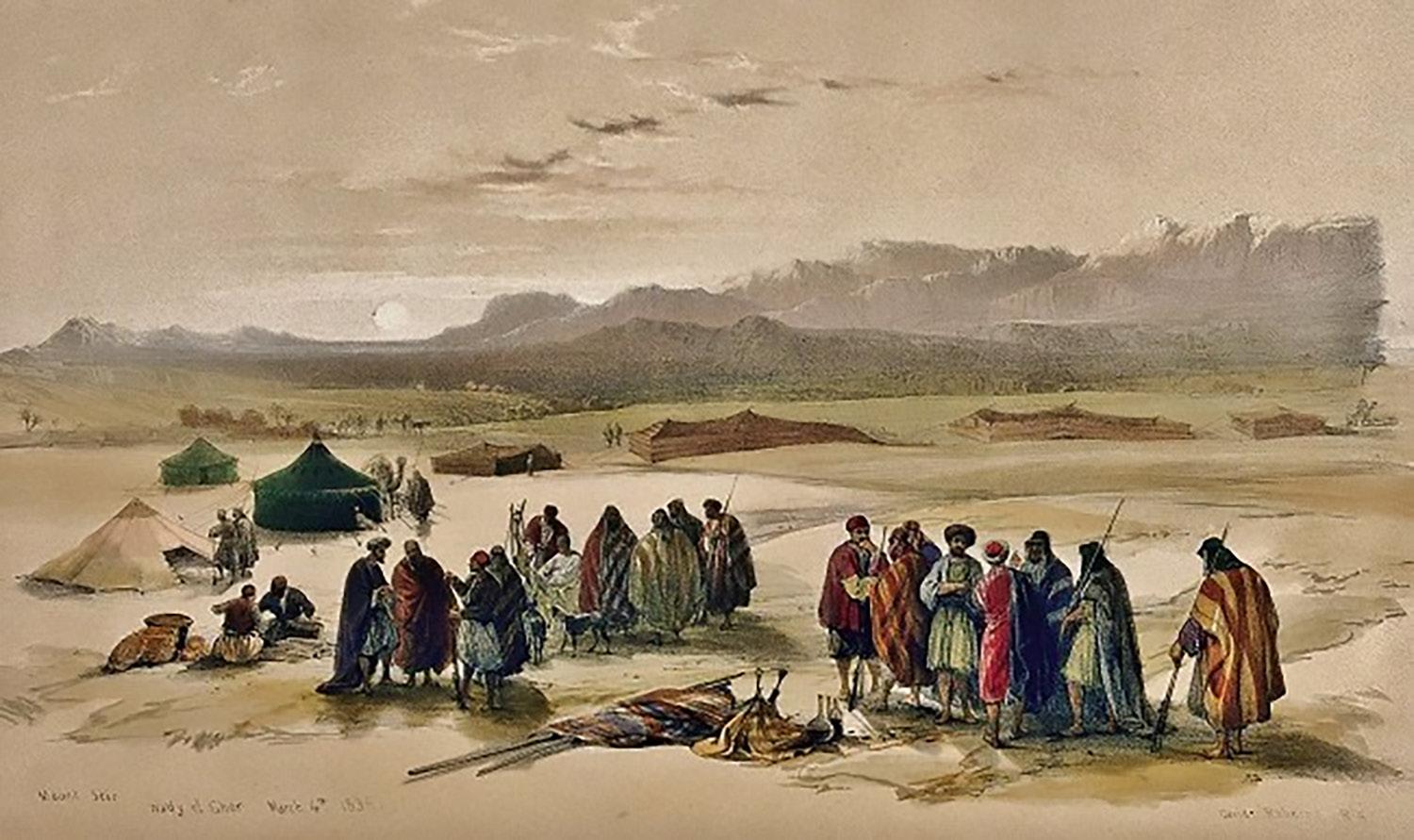

God stated that due to their inconsistency and lack of faith, they would not enter the promised rest.
That entire generation perished without experiencing the solace of rest.
Faith was what would guide those individuals towards rest in Canaan, but since they were not faithful to God, rest was reserved for those who maintained faith and trust in God's promises. Here is a principle that applies to each of us:
Are we not pursuing the same kind of rest that he desired, but in the wrong direction?
Are God's 21st-century people not attempting to discover him in possessions, positions, or status?
I would like to remind everyone that the soul finds no rest even with the fullness or abundance of anything except faith in the Savior. Only in this way can rest be experienced and hoped for in absolute security.
Jesus said that all those who are weary and burdened should come to him and find rest for their souls. Where are you headed? ◙
Rest was a necessity for God's people who wandered through the desert. God stated that due to their inconsistency and lack of faith, they would not enter the promised rest.
